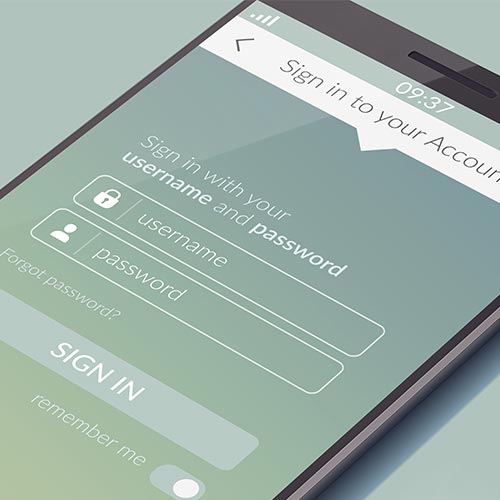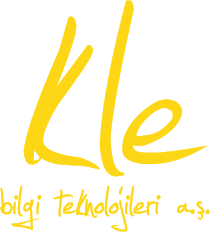
10 significant soft skills for every developer
The world of IT is changing rapidly as well as approaches to project management. As far as traditional approaches are concerned, it is possible to draw a clear line between people who run the project, interacts with the business and developers who are simply carrying out tasks. This model is sometimes used now but it is not always successful and applicable. The reason is the following: the final result often differs from what is actually needed or it was spent much more money than expected.
We have decided to choose 10 most important soft skills that are valued in IT companies and often help to achieve bright results.
- Understanding customer’s values
- Communication skills
- Emotional intelligence
- Teamwork
- Time management
- Negotiation skills
- Flexibility and creativity
- Proactivity
- Presentation skills
- Mentoring
Understanding customer’s value

Why is it necessary?
First of all, you can reach high level of credibility between developer and customer. If the developer really understands why he does what he does, he will be able to choose the right approach and solution, the time will show what task can be performed in a different way (or not to be done at all).
Secondly, you can avoid redoing. If the product ultimately does not solve the problem of the customer or is not interesting for users it will have to be redone. In the modern world of IT developers need to understand the customer’s business to make a really good product.
How to develop?
Always think about the problem and only then about the task. The developer often begins to perform the task without thinking about what problems does it solve. Perhaps the task does not solve any problem or solves in the wrong way.
Communication skills

Why is it necessary?
Cooperation makes it easier to cope with the difficulties. If you do not communicate with other people, sooner or later you will stay face to face with the complications and perhaps with tasks impossible to perform. Developers need communication to exchange experience and knowledge. It works in the opposite direction as well: if there is a man in your team who possesses some unique skills, he can share them with you. It’s an endless cycle where everyone gets benefits: the team, the project and, of course, you.
How to develop?
Be open and come meet the fellowship, meet new people more often. Help others and don’t be afraid to ask for help — it facilitates communication. Good and banal advice — communicate! This is the only way to develop this skill; neither courses nor books will help you.
Emotional intelligence
Why is it necessary?
On the one hand, emotional intelligence is the understanding of the feelings and emotions of other people. It will be much easier to communicate if you understand people’s feelings and motives – you’re able to interact with them. You need to understand who they are, what they want and what are afraid of. On the other hand, emotional intelligence is the ability to manage your own emotions. If you understand your emotions and you can control them, you’ll be successful in making right decisions.
How to develop?
Firstly, people need to develop the skill of a good listener. Secondly, you need to learn how to analyze objectively your own behavior as well as behavior of your partner. Try to focus and observe how people behave, pay attention to their facial expressions, intonation. Analyze your own behavior in the same way: if you misbehaved or were silent when you shouldn’t have to, think about the reason of it. Don’t be toxic. Do not criticize, do not complain, especially publicly because such actions are destructive, they are not good for you and your surroundings – do not make the mood and the atmosphere in the team worse.
Teamwork

Why is it necessary?
No matter how good you are, there are tasks and projects that you cannot handle alone without spending a lot of time. There are projects where from 100 to 1,000 and even more people are involved. Each person has a unique set of skills and taking such people together, you can get high results.
How to develop?
Make decisions together with your colleagues, no matter the task is difficult or not. One of the ways to feel the team work, support, and mutual help is to do a team sport, even a virtual one.
Time management
Why is it necessary?
Time management is not about time, but about objectives and priorities. It teaches how to manage the business in order to maintain productivity during periods of high workload and how to have work – life balance.
How to develop?
Keep all tasks in one place. Today we get information from everywhere — mail, instant messenger, calls, oral or written orders. It is difficult to work, so it’s important to keep everything in one place, no matter whether it will be a notebook or a mobile application. Divide large tasks into small ones. The human brain is afraid of big challenges because it doesn’t understand how to begin, and we begin to procrastinate until the deadline comes.
Negotiation skills

Why is it necessary?
It is necessary to “sell” your ideas and skills. You can invent or create something really cool but if you don’t present this idea correctly, then it can be simply left without attention; the customer chooses something much worse because the other developer speaks “louder”.
How to develop?
First — prepare for interviews and meetings. They will perform well if you are prepared and ready to unexpected situations. Find information about a person, think about what you want to achieve, set a goal. Practice negotiating in your everyday life.
Flexibility and creativity
Why is it necessary?
Any developer needs to be willing to change and be able to make decisions in an unstable situation. The flexibility of mind and creativity, lateral thinking can help to perform it.
How to develop?
Pay attention to the moments when you start to think in a standard way according to some patterns or when you follow stereotypes, then try to avoid such situations. Don’t be afraid of new challenges. We are afraid of failure. But failure is part of learning and development. Fail fast, fail often! Get creative — playing a musical instrument or drawing develops flexible thinking.
Proactivity

Why is it necessary?
Being proactive is a useful skill for managing your life and career as well as for specifying the desired path and trajectory. If you want to stand out from the crowd, to be the best, you need to be proactive to do more than is expected of you.
How to develop?
First, forget the phrase “it’s not my job”. There are things that do not directly relate to your responsibilities but sometimes there are situations when your help is needed. This approach helps the team faster and more efficiently to carry out tasks and for you to grow. There is very good advice: before you go to elder and more experienced people with a question – first Google it. It is much appreciated when a person already has some information, solution and asks not “how and what to do”. There is a very famous book “7 habits of highly effective people” by Stephen Covey where lots of useful techniques that will help to develop a proactive personality.
Presentation skills
Why is it necessary?
It’s simple — to demonstrate the results of your work and to share experiences with colleagues, and to train others.
How to develop?
Observe how other people do it. Look after good public speakers, try to remember that you seemed cool. If there is a possibility to speak somewhere in public, do it, do not hesitate. Do not hide behind other people!
Mentoring

Why is it necessary?
Mentoring is needed to share knowledge with colleagues and help to adapt newcomers. In addition, teaching others reinforces your own knowledge.
How to develop?
If you can do something others cannot (drawing, playing the piano, solving problems in math, etc.) try yourself in the role of mentor. It develops patience and other necessary skills. Another option is conducting your own master class.
Conclusion
In the process of reading the article you could slip a dangerous thought: possibly, only soft skills are enough to succeed in your career? Of course, not. First of all, any IT company is looking for talented professionals who inspect and evaluate their hard skills. But only when soft and hard skills are harmoniously combined in one person, he is likely to be an outstanding professional.








